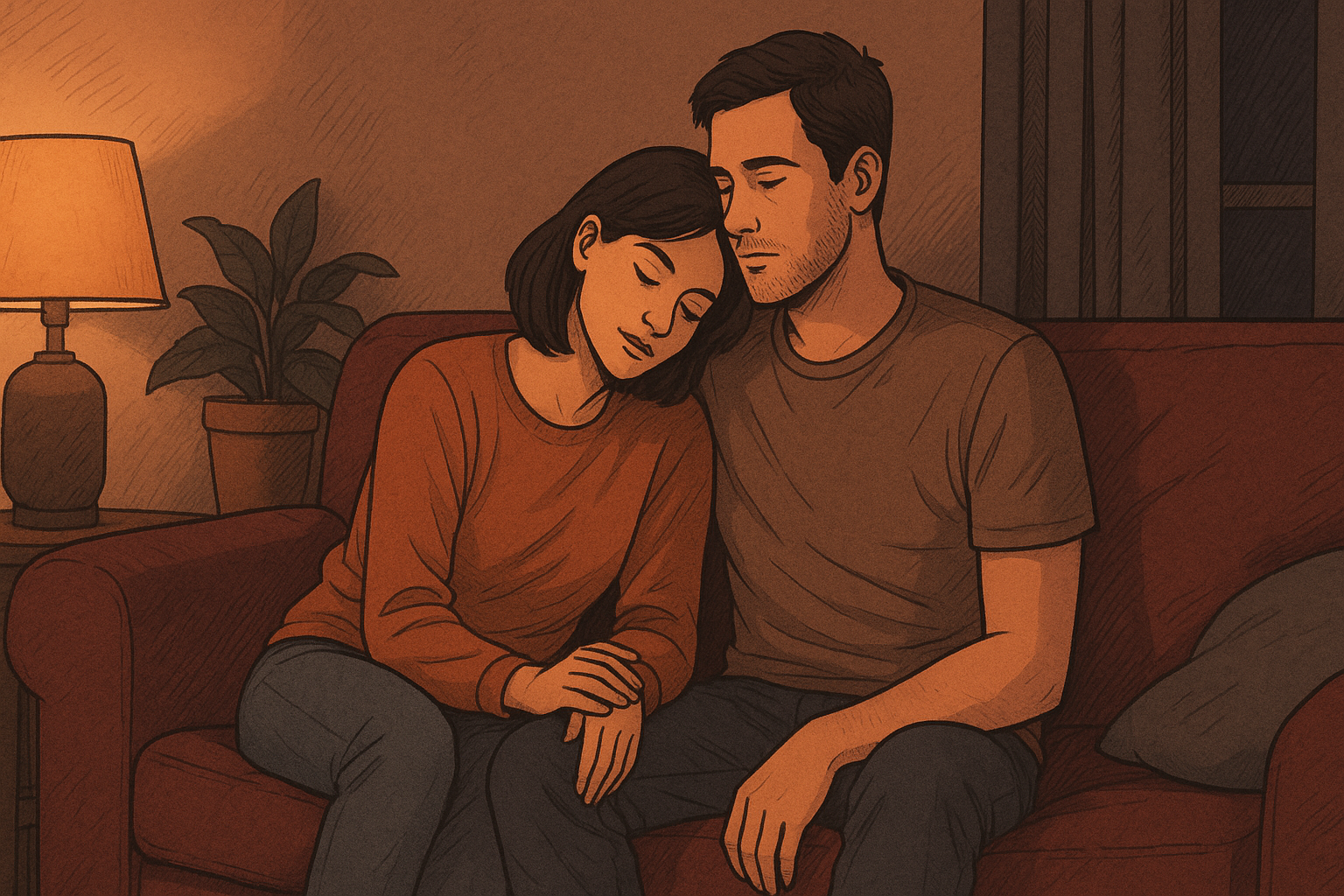Desire Killers You Can’t See: Mental Load, Cognitive Distraction, and Sex
Date Published

This one’s heavy but also liberating. We’re talking about desire killers you don’t always see, the mental load, the cognitive distractions, and how they quietly kill libido. If you’re wondering why lust feels blocked, this might hit close to home. Let’s get into it.
What Are These “Invisible” Desire Killers?
Mental Load
The invisible labor of running a household, organizing errands, remembering appointments, emotional caretaking, and anticipating what needs to happen next. Even if you’re working, even if you share physical tasks, the mental tally of “who’s thinking about everything else” often falls more on one partner. That weight drains energy.
Cognitive Distraction During Sex
Thoughts like: Do I look okay? Did I send that email? What am I forgetting to do tomorrow? These interrupt, pull you out of the moment, reduce satisfaction, orgasm frequency, and dampen desire. There are studies (PMC) showing that body dissatisfaction and cognitive distractions reduce pleasure and raise sexual distress.
Emotional Exhaustion & Stress Spillover
Constant stress (mental load + external life stressors) means your nervous system is often in “do not disturb” mode for desire. You don’t turn on easily when you’re drained. Sleep suffers, mood suffers, libido fades. (Yep, research backs that too.)
Why This Matters (Beyond Just “Feeling Frustrated”)
Look, it’s not just that you want sex less. You probably do! There's just so much going on in your head all the time. These thoughts are taking priority, and that causes your ability to enjoy sex, to be present, and to connect to fall off.
It can even mess with self-esteem, sense of identity, and relationship closeness.
Because these factors are subtle, people often blame themselves or think something’s “wrong” when actually it’s about external pressure & sometimes an unmet division of labor.
What the Research Tells Us
A study in Australia found that women who feel the mental load is shared equally with partners report higher relationship satisfaction and more sexual desire than those who feel they carry more of it. (Swinburne University of Technology)
Studies via PMC show that body appearance cognitive distraction during sex mediates sexual distress and lower satisfaction.
New work is starting to quantify how mental load isn’t just about time spent, but emotional/cognitive weight, and how that load spills over into every part of life, including desire.
Division-of-Labor Fixes That Actually Move the Needle
Let’s get actionable. These aren’t cheesy “just tell them to help more” tips. They're real frameworks + small changes to shift things:
Audit Together
Sit down with your partner, list everything that takes mental energy: remembering bills, kids' schedules, social commitments, phone calls, and emotional check-ins. See who is doing what. Naming it breaks it down.
Assign Ownership & Rotate
Don't just help out, own it! If you’re in charge of dealing with the plumber, be the one who owns that task fully. Rotate these labor burdens so one person isn’t always carrying the weight.
Scheduled Mental Rest
Create time where neither partner has to run logistics. E.g., designate Sunday evening as “no planning for the week” time. Let one person handle logistics so the other can relax without thinking about everything. Even better: block off time around sex so you can mentally shift out of task-mode. Just be sure to add a cooldown period before and after 💞
Mindfulness & Physical Cueing
Before sex, take 2 minutes to feel your body, your breath. Say out loud or in your head: “Right now, I choose to be present with you.” Small rituals (deep breaths, lighting, shutting off phones) help reduce mental load momentarily.
Check-in Language
Use phrases like: “I’m feeling mentally tired and distracted, I want you, but I need this task off my mind first.” Or “I feel overloaded, can you take care of X so I can show up tonight?” Vulnerability can be sexy. Honesty = desire builder.
Sample Scenarios: What This Looks Like in Real Life
Scenario A — Evening after work/family
You get home, your partner asks how your day was. You’re thinking about tomorrow’s meeting, the chores. Instead of pushing through, you say: “Babe, I’ve been managing everyone’s schedule all day; mind taking care of dinner tonight so I can unwind?” Then later, you can relax together without feeling behind.
Scenario B — Moments in the bedroom
You’re under the sheets and your brain’s flashing “did I lock the car?” Instead of trying to force desire, you both do a short grounding exercise: turn off devices, dim lights, maybe some breathing or touch first. Let your senses take over.
Final Thoughts
Desire doesn’t just show up willy-nilly. It’s fragile. It needs space, mental presence, rest, and the feeling of fairness. If you feel desire slipping, don't worry. It’s not a moral failing; it may just be that your brain’s full. Start with little shifts in how mental and emotional labor is divided. You’ll likely see more presence, closeness, and yes, more desire.